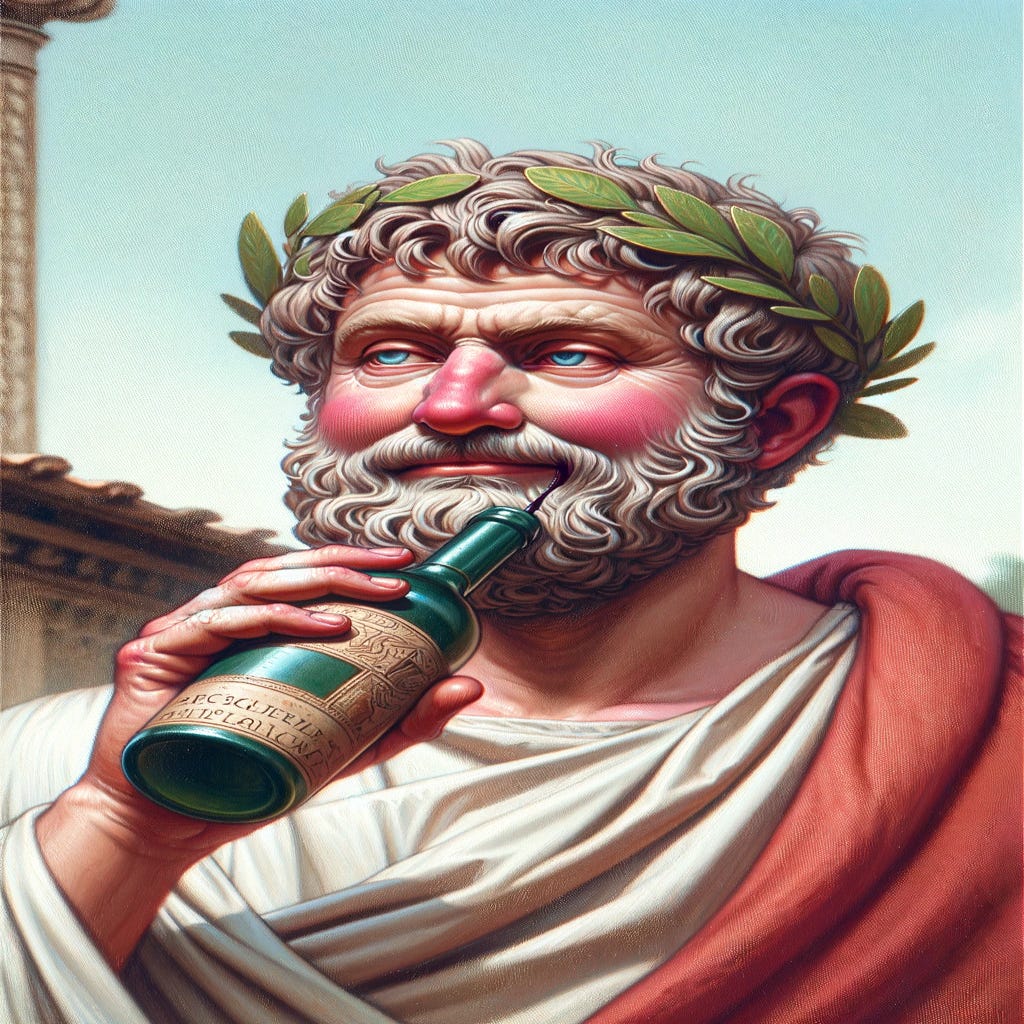What does Stoicism think of getting boozy?
Well in this letter, Seneca defends against Zeno’s (founder of stoicism’s) argument that drunkenness is bad. Zeno says that a good man can be trusted with a secret but a drunk man cannot be. Thus, a drunk man is not a good man. Seneca calls this ridiculous and says a good man can be trusted with a secret. A sleeping man cannot be. Thus, a sleeping man is not a good man.
So, Seneca = PARTY TIME!!?? Not so fast.
Seneca rejects Zeno’s explanation because he says the argument against drunkenness can be made even simpler. There’s no need for syllogism (a type of logic like what Zeno used). Instead, it’s easier to simply state,
“drunkenness inflames and lays bare every vice, removing the reserve that acts as a check on impulses to wrong behavior.” (Seneca’s Letters to Lucilius, LXXXIII)
and then he goes on to point out examples of people drunkenly making huge mistakes.
He makes another argument that the only difference between a drunk man and a crazy person is time. If a drunk person’s behavior persisted for days, everyone would think he’s simply lost his mind.
“so-called pleasures, when they go beyond a certain limit, are but punishments…” (Seneca, LXXXIII)
Of course, there’s a difference between a single drink once in a while and sloppy drunkenness.
But ask yourself, is it really one drink?
Am I risking making a huge mistake?
Be constantly aware of your relationship with alcohol. Remember that too much pleasure becomes a punishment.
Question of The Day
If you acted as you do when you’re drunk for days, would people think you’re a crazy person?
Your Biggest Fan,
Noah “BigNerd” Sochaczevski


